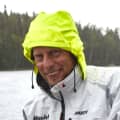Research project: Spread of seagrass to be recorded comprehensively for the first time
Hauke Schmidt
· 06.03.2025

An ambitious research project is starting on the Baltic coast of Mecklenburg-Vorpommern, focussing on seagrass meadows along the entire coastline. The eight-year "MV Seagrass for Climate" project is being funded by the federal government with around 12 million euros and aims to provide the first comprehensive data on the occurrence and condition of seagrass beds. The Christian-Albrechts-Universität zu Kiel is in charge of the scientific management and is now coordinating the next steps in the project.
Seagrass plays a crucial role in the marine ecosystem of the Baltic Sea. The meadows serve as nurseries and habitats for numerous species of fish and other sea creatures. At the same time, they are regarded as effective natural carbon sinks that can bind up to 50 times more CO2 per hectare than tropical rainforests. Despite their importance, precise data on the extent and health of seagrass meadows off the coast of Mecklenburg-Vorpommern has been lacking to date. The project now aims to close this knowledge gap.
In the first phase of the project, a comprehensive mapping of the seagrass meadows is on the programme. State-of-the-art technologies will be used: satellite data will provide large-scale overviews, while research divers from the University of Rostock will analyse selected areas in detail. These surveys will be supplemented by video recordings from towed cameras, which the State Agency for the Environment, Nature Conservation and Geology has already used in smaller areas of the Baltic Sea in the past.
Project manager Florian Uhl emphasised the uniqueness of the project to NDR: "This is completely new for Mecklenburg-Vorpommern. For the first time, we are getting a very precise picture of the entire seagrass meadows off the state coast." This data basis is crucial for the next steps of the project, which involve the targeted reintroduction of seagrass.
Recolonisation and microbiome research
Following the mapping phase, the scientists plan to plant new seagrass meadows at suitable locations. In doing so, they will draw on findings from the parallel "SeaStore" project, which has already been researching the optimal environmental conditions for seagrass on the coast for a year. A particular focus is on researching microbiomes - the communities of bacteria, microscopic algae and animals that live in and on seagrasses. In both projects, the University of Greifswald is investigating the influence of these microorganisms on the growth and health of seagrasses. These findings could be decisive for the success of the reintroduction measures.
Long-term strategy for the protection of seagrass
The overall aim of the project is to provide the state government with a well-founded recommendation for the protection and reforestation of seagrass beds at the end of its eight-year term. This should not only contain scientific findings, but also practical instructions for the reintroduction and maintenance of seagrass beds.
An important component of this strategy will be digital data processed by geoinformatics experts at the University of Rostock. This will enable the state to monitor the development of seagrass meadows in the long term and take targeted conservation measures.
The "MV Seagrass for Climate" project combines basic research with applied science and creates the basis for sustainable management of coastal waters. The knowledge gained could be of great importance not only for Mecklenburg-Vorpommern, but for the entire Baltic Sea region.

Hauke Schmidt
Test & Technology editor
